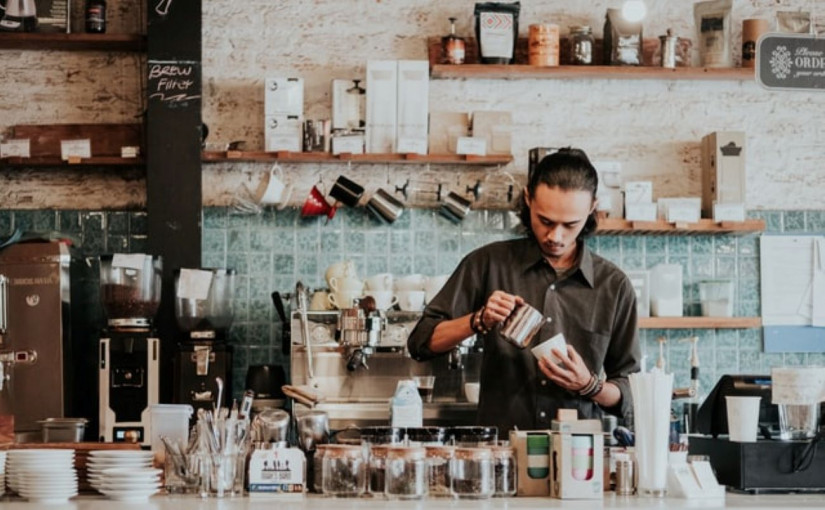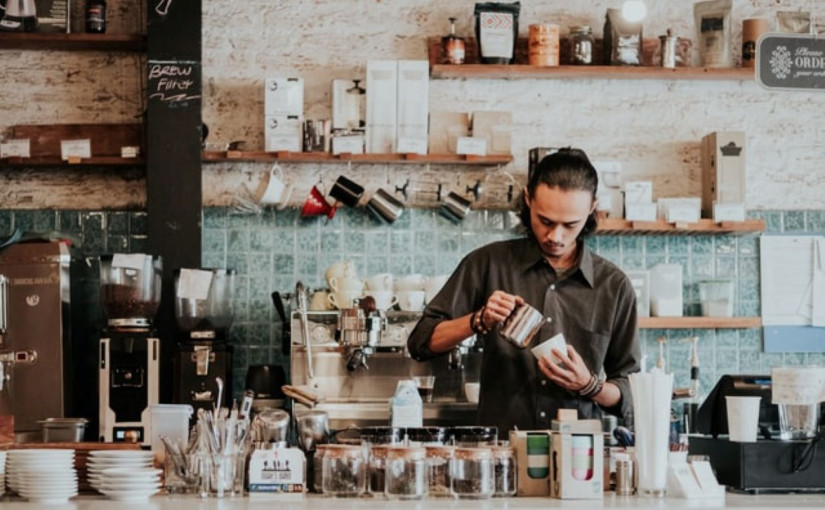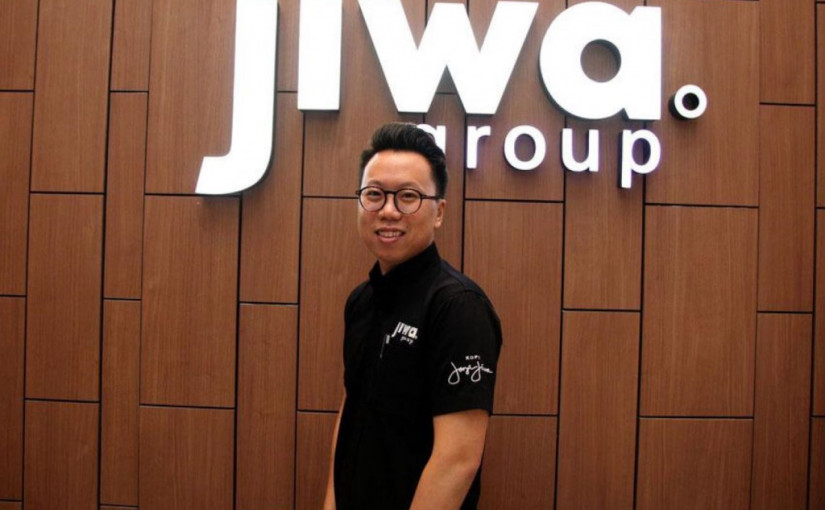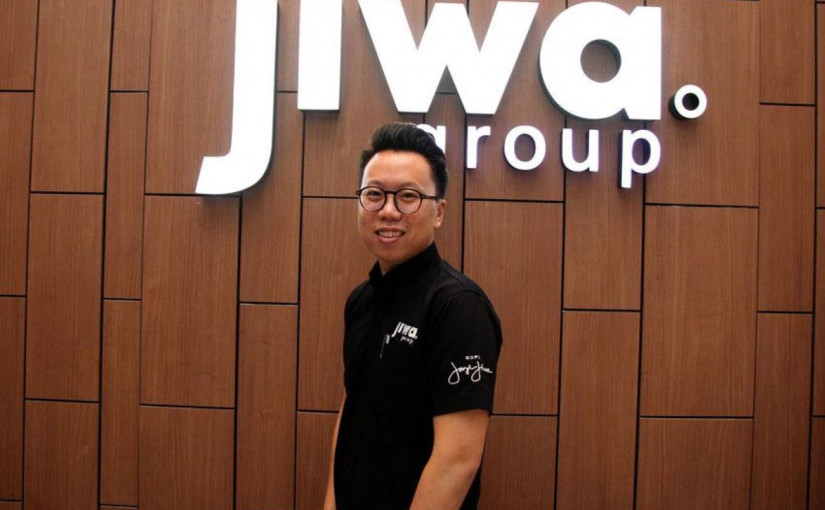Retail business is getting out of breath amid the Covid-19 pandemic. Relying only on offline business will not cover the whole operation, therefore, online innovation is necessary in order to accommodate orders and deliveries.
Even when the situation is getting normal, there will be nothing like the previous normal, or some people prefer to call it “the new normal”. There will be many strategic adjustments by retails to be relevant to the current condition.
“All retail models will change along with this pandemic. It will lead to social distancing until the vaccine is found. Dine-in may need more space that it becomes inefficient, instead, online delivery and pick-up will be the focus. This will change the landscape and cost structure of all F&B outlets, “East Ventures’ Managing Director Willson Cuaca told DailySocial on Tuesday (19/05).
Cuaca’s prediction is more or less in accordance with what is presented by the BCG Henderson Institute, the work from home situation, for a number of businesses are leading quite miserable output yet some players are harvesting profits. Food delivery services will be the most on-demand service, while dine-ins will be significantly affected.
This condition is reflected in the Fore Coffee’s strategy. Fore Coffee’s CEO Elisa Suteja said management was adapting to changing business situations during the pandemic, one of its initiatives was optimizing offline store services.
It is said several shops have temporarily closed, some stores are merged, and the system is upgraded to improve online sales services. Some assets that will no longer be used as a result of the merging of shops are decided to be sold.
As quoted from Tech In Asia, Fore has permanently closed 16 stores, 45 others were temporarily closed during Ramadan. The remaining 72 stores are still in operation today.
It was confirmed, rumors about the termination of Fore operation were untrue. One of the staff, according to Elisa, had spread some of the company’s internal information, it then delivers wrong perceptions in the public.
“Fore will not shut down and still continue to operate. We closed several outlets and are in the process of selling assets related to these locations. Information circulating that Fore closed all locations permanently is not true, “he said in an official statement on Monday (5/18).
DailySocial contacted Elisa to inquire further on which locations were merged or closed and whether there was a reduction in the number of employees. But until this news was revealed there was no response.
Since the large-scale social restrictions (PSBB), the company follows the applicable rules by limiting services through online delivery and pick-up. According to him, online channels make a high contribution to the Fore business. Claimed to be an increase of 12.8% online sales every week.
To keep up with the demand, the company added more options for coffee and non-coffee beverage products in one-liter packaging that can be purchased at the Fore, Tokopedia, Shopee, and Bukalapak applications. There are nine product variations offered to consumers and sales continue to increase by 22% each week.
Not only that, the company offers Do It Yourself products, consumers can make their own drinks or food with the basic ingredients of Fore products and variety of drinks to support the fitness of the consumer’s body.
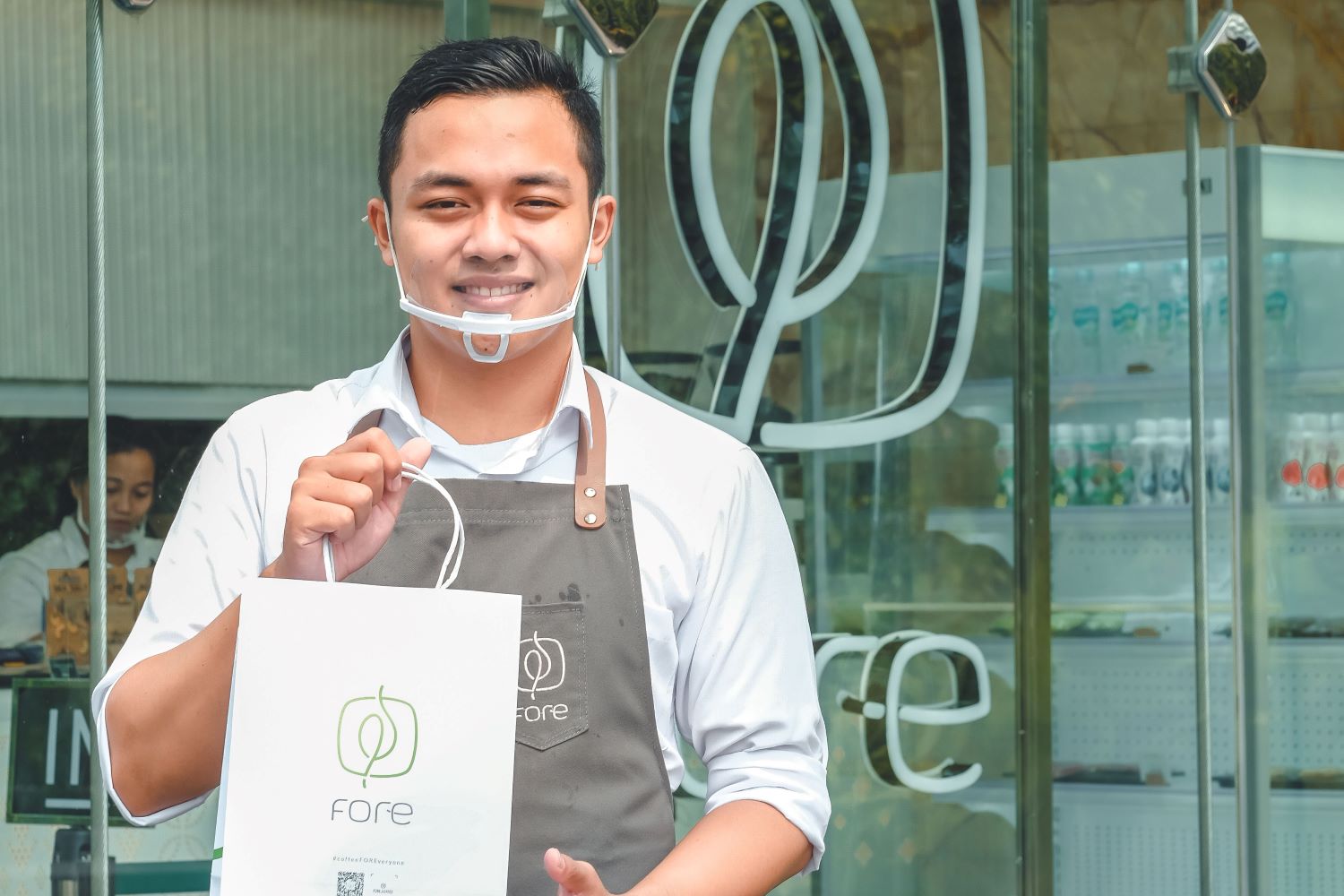
This week, he continued, the company launched a delivery service from an application order named Barista Delivery. This only applies to orders less than two kilometers from the Fore outlet, which will be delivered directly by Fore’s Barista.
“We believe this can improve the convenience of consumers who receive their products directly from the team that is always in good health as we monitored.”
Tight competition
The new retail competition map such as Fore Coffee, in the midst of the pandemic will be increasingly fierce, especially as its closest competitor Kopi Kenangan just announced the acquisition of funding of more than 1 trillion Rupiah. So far the funding for Fore has not been that big, both in total and in total.
Optimism to do the next raising, according to Willson, remains wide open for Fore. He thinks, the principle of funding is to create value. As long as Fore can provide more value, funding is definitely available.
“And this is not a winner takes all, which is good to drink one type of coffee, Fore has enough capital to survive.” For the record, Fore is under the East Ventures portfolio. Initially Fore was a trial project until it finally became an official startup.
Adjusting the location of outlets, he continued, is part of adaptation and relevance. Stores that should be closed or combined with locations that clearly have much better operations in these conditions, will certainly be chosen rather than imposing irrelevant strategies.
Kopi Kenangan has also temporarily closed some of its stores. Only 47% of the approximately 300 stores are operating normally. The rest experienced a reduction in operating hours and were temporarily closed due to the pandemic and PSBB situation.
“We are still expanding to open around 30 outlets per month, last April we added 30 more outlets, as well as in the following months,” said Coffee Kenangan’s CEO Edward Tirtanata, as quoted by Bisnis.com.
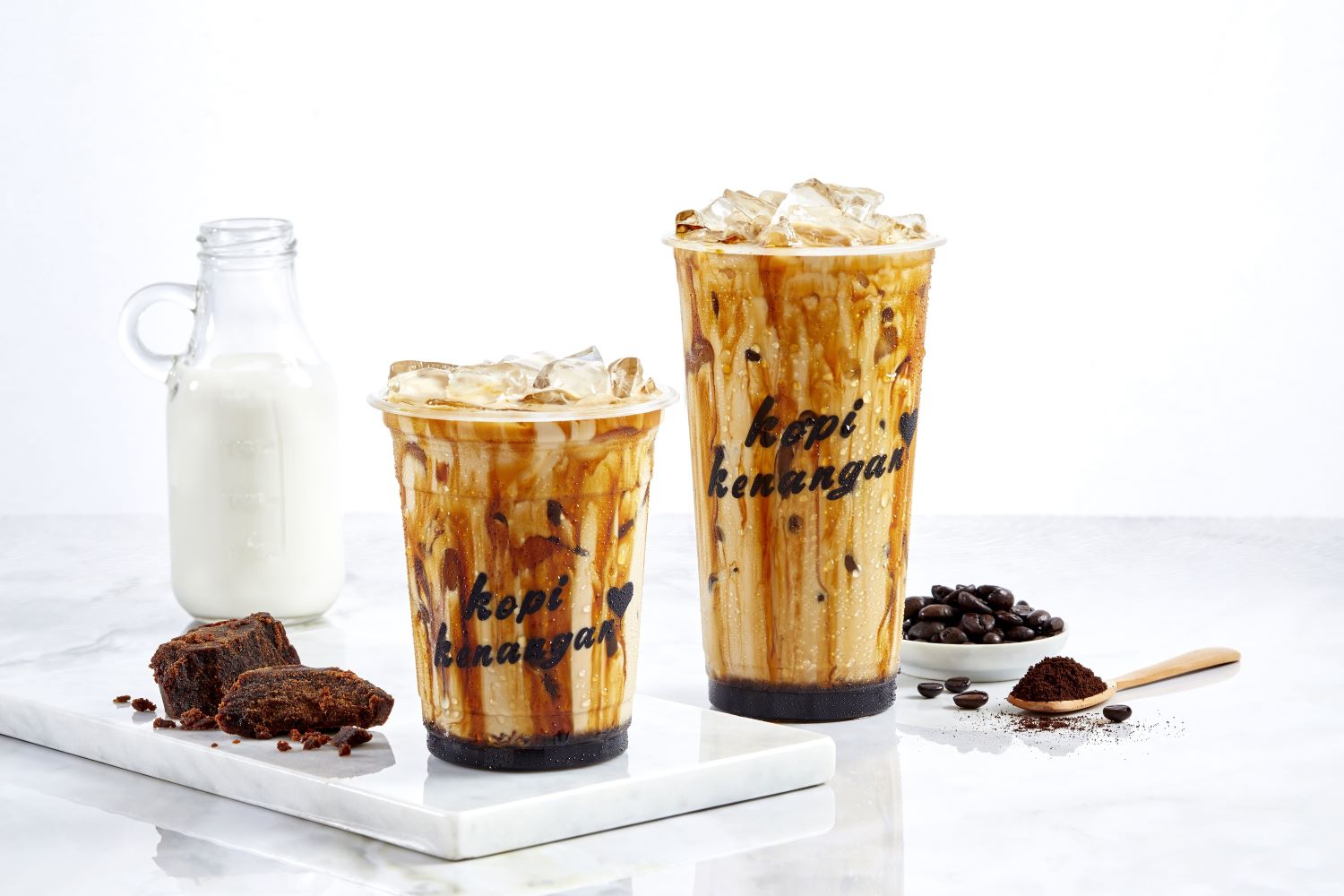
Coffee consumption has become a part of Indonesian culture. Evidently, during the pandemic, the demand remained. In a GDP Venture summary titled “The Impact of Covid-19 Pandemic” added that there were changes in food consumption patterns that occurred during the pandemic, according to Firmenich FAST Survey: Indonesians In Time of Covid-19, W3 Mar20.
It was explained that Indonesians ate healthier foods, marked by the highest increase in purchases of fruit, vegetable, rice and flour products, and fish. Then followed by tea and coffee products, dairy products, and juices to maintain their health. Consumption of carbonated drinks, alcohol, sweets, desserts, processed foods tends to decrease.
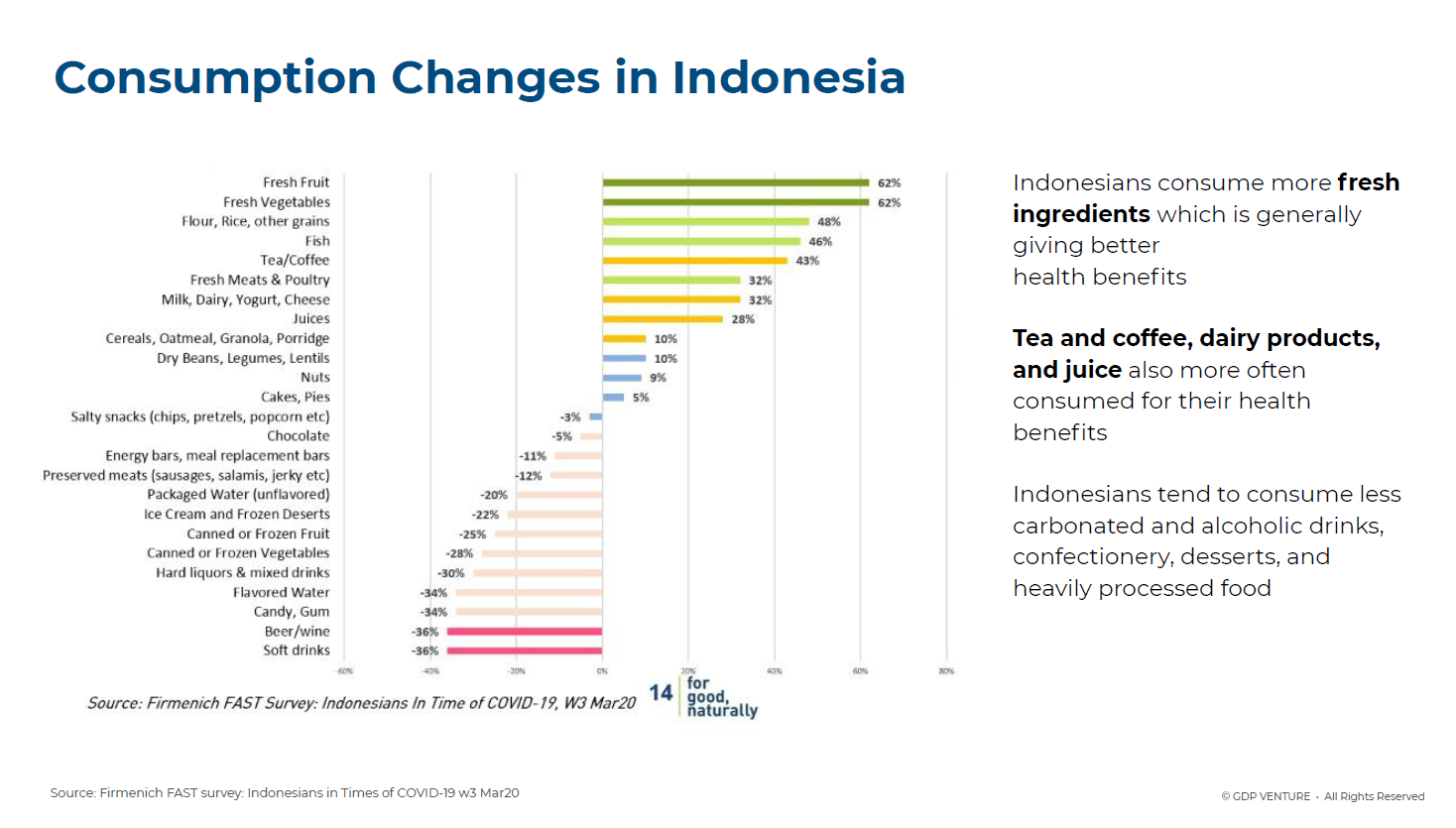
–
Original article is in Indonesian, translated by Kristin Siagian
